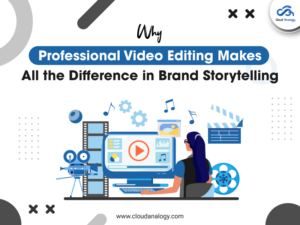Sharing is caring!
Imagine your business as a bustling kitchen, with orders flying in, ingredients to manage, and a team working to serve up success. Without a system to keep it all organized, chaos creeps in – missed orders, frustrated customers, and a frazzled crew. That’s where a Customer Relationship Management (CRM) system steps in, acting as your master chef, orchestrating every move to ensure a seamless operation.
But with so many CRM service options out there, how do you pick the one that’s just right for your business? Let’s dive into a step-by-step guide to finding the perfect CRM, served with a dash of creativity and a sprinkle of practicality.
Step 1: Know Your Business Like Your Morning Coffee
Before you even glance at CRM services options, take a moment to sip on some self-reflection. What makes your business tick? Are you a small startup aiming to nurture leads like delicate seedlings, or a growing enterprise juggling complex sales pipelines? Define your goals – boosting sales, streamlining customer service, or automating marketing tasks. Ask yourself:
- What processes are dragging your team down?
- How many users will need access to the CRM?
- What specific pain points do you want to solve (e.g., scattered customer data or manual follow-ups)?
- Are there other tools (like email or accounting software) you need your CRM to play nicely with?
Step 2: Hunt for Must-Have Features
Not all CRMs are created equal. Some are like a Swiss Army knife, packed with tools, while others are more like a trusty spatula, perfect for specific tasks. Make a list of features that align with your goals. Here are some essentials to consider:
- Contact and Lead Management: Organize customer info in one place, like a digital Rolodex that never gets dusty.
- Sales Pipeline Tracking: Visualize your deals moving from “maybe” to “yes”.
- Automation: Let the CRM handle repetitive tasks like sending follow-up emails or updating records, freeing your team to focus on building relationships.
- Reporting and Analytics: Get insights into what’s working (and what’s not) with customizable dashboards.
- Social Media Integration: Track customer interactions across platforms, because today’s customers live on social as much as email.
- Mobile Access: Ensure your team can use the CRM on the go, whether at a coffee shop or a client meeting.
Prioritize features that solve your biggest headaches, but don’t get dazzled by shiny extras you’ll never use. A CRM bloated with unused tools is like ordering a five-course meal when all you need is a hearty sandwich.
Step 3: Budget Wisely – Don’t Break the Bank
CRMs come in all price ranges, from free plans to premium suites costing $100+ per user per month. Before you fall in love with a fancy platform, set a budget. Consider:
- Subscription Costs: Are the features you need included in a tier you can afford?
- Hidden Fees: Look out for costs like implementation, training, or add-ons for integrations.
- Scalability: Will the CRM stay affordable as your business grows and you need more users or features?
- Data Caps: Some CRMs limit storage or contacts, which can sneakily drive up costs.
Think of your CRM as an investment, not an expense. A good one will save time, boost sales, and improve customer satisfaction, but overspending on features you don’t need is like buying a gourmet mixer when a whisk will do.
Step 4: Test Drive Before You Commit
You wouldn’t buy a car without a test drive, right? The same goes for CRMs. Most providers offer free trials or demos, so take them for a spin. During the trial:
Check User Experience: Is the interface intuitive? Can your team navigate it without a PhD in tech?
- Test Features: Play with the tools you prioritize. Does the pipeline tracking feel smooth? Are reports easy to generate?
- Involve Your Team: Get feedback from the people who’ll use it daily. If your sales team groans at the thought of logging in, adoption will be a struggle.
- Explore Integrations: Test how well the CRM connects with your existing tools, like email or marketing platforms.
A trial is your chance to kick the tires and ensure the CRM feels like an extension of your team, not a clunky add-on.
Step 5: Prioritize Integration and Scalability
Your CRM shouldn’t be an island; it must sync with your existing tech stack. Whether it’s your email marketing tool, e-commerce platform, or accounting software, seamless integrations prevent data silos and save your team from manual data entry. Look for CRM services with robust APIs or pre-built integrations via platforms like Zapier.
Also, think long-term. A CRM that works for a team of five might choke when you scale to 50. Choose a system that can grow with you, offering options to add users, features, or customizations as your business evolves. A scalable CRM is like a good pair of jeans – comfortable now and stretchy enough for the future.
Step 6: Don’t Skimp on Support and Training
Even the best CRM service is useless if your team can’t figure it out. Check the vendor’s support options:
- Is customer support responsive and available via phone, email, or chat?
- Do they offer training resources like tutorials, webinars, or in-person sessions?
- What’s their reputation for reliability and updates?
A vendor with a strong track record and ongoing support is like a trusty sous-chef, always there to help when things heat up. Read reviews from businesses like yours to gauge real-world performance.
Step 7: Customization is Key
Every business has its own quirks, so your CRM should be flexible enough to adapt. Look for platforms that let you customize fields, workflows, and reports to match your processes. A rigid CRM is like a one-size-fits-all apron. It might work for some, but it won’t feel right for everyone. Customization ensures your CRM fits your business like a glove, boosting adoption and efficiency.
Step 8: Make It a Team Effort
Choosing a CRM isn’t a solo mission. Involve your sales, marketing, and customer service teams in the decision. They’re the ones who’ll use it daily, so their input is gold. Host a workshop to map out workflows and gather requirements. When everyone’s on board, your CRM becomes a team player, not a top-down mandate that gathers digital dust.

Why Cloud Analogy’s CRM AMC Package is Your Secret Ingredient?
Once you have chosen the perfect CRM, keeping it in top shape is crucial. That’s where Cloud Analogy’s CRM AMC (Annual Maintenance Contract) Package comes in, like a master chef ensuring your kitchen runs smoothly. As one of the Salesforce Consulting Partners and a CRM AMC service provider, Cloud Analogy provides:
- Ongoing Support: Expert assistance to troubleshoot issues and optimize your CRM.
- Regular Updates: Stay ahead with the latest features and security patches.
- Custom Enhancements: Tailor your CRM to evolving business needs.
- Training and Guidance: Empower your team with hands-on training to maximize CRM value.
Whether you’re using Salesforce, Zoho, or another platform, Cloud Analogy’s AMC package keeps your CRM firing on all cylinders, so you can focus on delighting customers and growing your business.
Ready to take your CRM service to the next level? Explore the CRM AMC Package at Cloud Analogy and let your CRM shine.

Nitish Bhardwaj
Salesforce Principal Consultant | Chief Information Officer
An experienced Salesforce.com professional with 5+ years of experience in consulting on and delivering Salesforce projects for mid size, large and very large customers.Hire the best Salesforce Implementation Partner. Choose certified Salesforce Implementation Experts from Cloud Analogy now.










